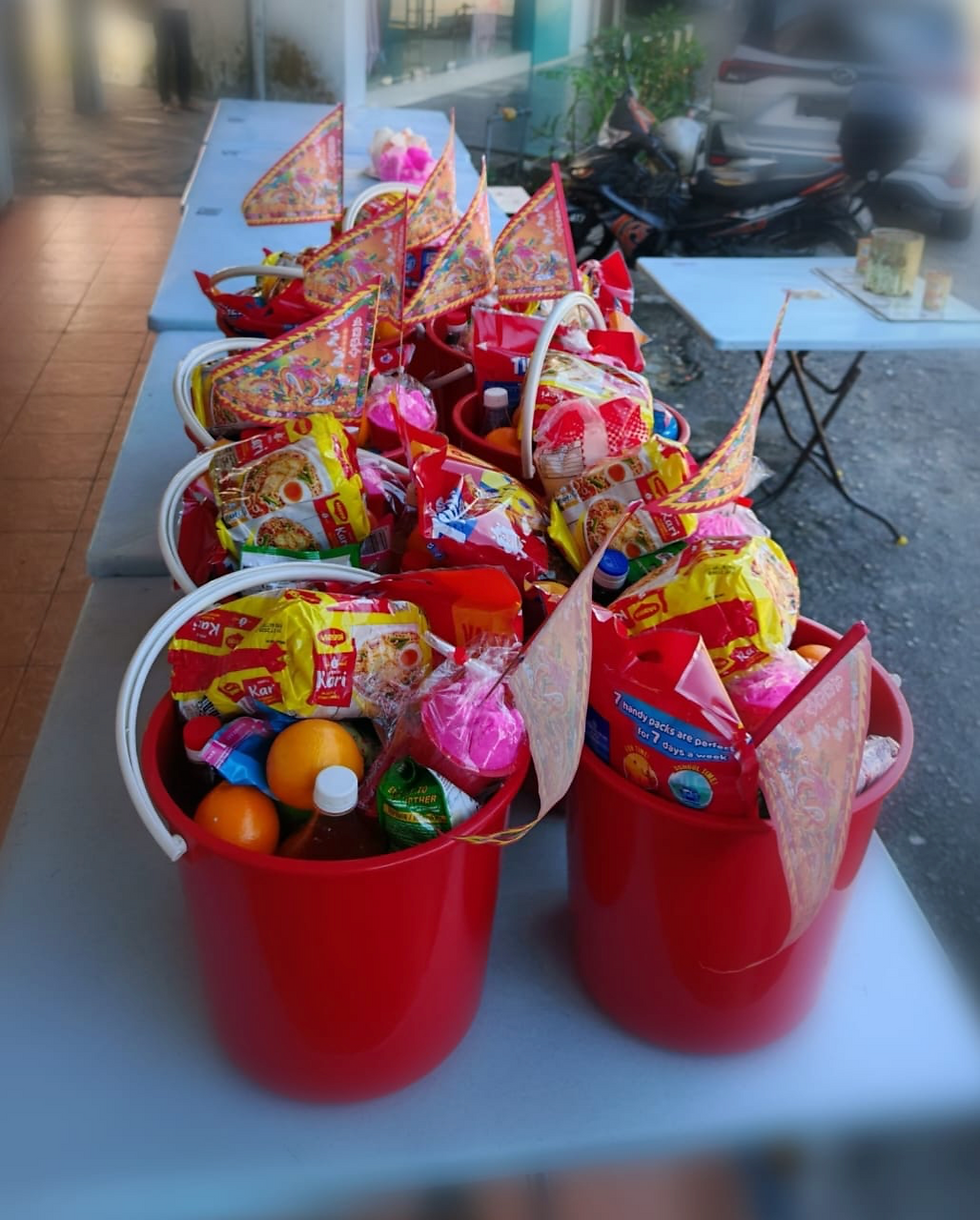Hungry Ghost Festival Malaysia: Rituals, Beliefs & Wellness
- Jess Chuen
- Sep 16, 2025
- 4 min read
✍️ Editor’s Note
In many cultures, rituals for the unseen world are as vital as those for the living. In this essay, writer Jess Chuen takes us into Malaysia’s Hungry Ghost Festival — a practice that blends Taoist and Buddhist traditions, reshaped through modern life. From paper iPhones to incense smoke rising above city streets, this festival shows how remembrance and compassion continue to anchor wellness and belonging across generations.
The Hungry Ghost Festival takes place in the seventh lunar month (typically August or September), known as Zhong Yuan Jie (中元节) or Yu Lan Sheng Hui (盂兰胜会). This period often called as ‘Ghost Month’ (鬼月 Gui Yue) or ‘Ghost Festival’ (鬼节 Gui Jie), is deeply rooted in Taoist and Buddhist traditions. In Malaysian-Chinese society, this period is dedicated to honoring departed souls, not only their ancestors but also those referred to as ‘Good Brothers’ (好兄弟 Hao Xiong Di) who have passed without family to remember or worship them.
According to traditional Taoist beliefs, the gates of hell open during this month, releasing wandering spirits into our world. In Buddhist tradition, narratives like the story of Mulian rescuing his mother from suffering (目连救母), emphasize Filial piety and compassion. For the Malaysian-Chinese community, besides worshiping their ancestors, making offerings to these ‘forgotten’ souls is not just an act of remembrance or respect but also a practice believed to bring peace, safety and prosperity to the living in the year ahead.

As Madam Woo, a 78-year-old ritual volunteer, shared:
“We care for our ancestors during Qing Ming, but Ghost Month is also for those with no one. It is our duty to feed them and show respect. If they are peaceful, then we can be peaceful.”
Cultural Practices and Rituals
Here, the festival is marked by elaborate offerings and rituals. Families and communities will prepare incense and offerings of food normally including fruits, ‘sacrificial meats’ (三牲 San Sheng) like pork, chicken and fish, tea and wine, prosperity cakes (发糕 Fa Gao) and some vegetarian dishes. These are then placed outdoors to serve wandering spirits. Joss paper (which symbolizes money in golden and silver colors) crafted into shapes resembling money, clothing or even modern gadgets is burned to provide for the afterlife.

Mr. Wong, a local ritual organizer, added:
“Young people might not believe, but when they help burn joss paper, they learn respect. The smell of incense and the sound of prayers – this is how culture is remembered in the body, not just the mind.”
A special feature in Malaysia is holding of public events like song performances (歌台 Ge Tai) and Chinese operas. There is always a tradition to leave the front-row seats empty for invisible guests. Communities also host feasts and auctions of auspicious items, raising funds for temples or local charities. This festival is not only a tradition among Malaysian-Chinese society but also a pivotal practice for fostering social cohesion.
Sociological and Spiritual Significance
The Hungry Ghost Festival serves as a cultural mechanism for sustaining intergenerational ties and reinforcing social cohesion. It not only reflects Confucian values of filial piety seen in the Buddhist narrative of Mulian, but also addresses Taoist concerns about spiritual balance. The term ‘Good Brothers’ is a euphemism, a respectful and nuanced way of referring to spirits who might otherwise feel overlooked. This is how society mediates human-supernatural relations. This festival isn’t just a way to preserve ancestral traditions but also an adaptation to modern life.
Modern Adaptations
In urbanised Malaysia, the festival has evolved to address contemporary challenges. Environmental concerns over open burning have led to the use of designated containers. Taboos such as avoiding night-time swims or postponing weddings during this month, still remain spiritually significant for the Malaysian-Chinese society. The evolution of offerings, from traditional joss paper to the modern offerings such as paper iPhones, has shown how these rituals remain dynamically engaged with contemporary culture within the society. During the COVID-19 pandemic, paper masks were even sold in religious supply shops.

“In the past, people only bought simple joss paper and incense. Now, you see paper houses, cars of different brands, watches and even modern items like paper smartphones. The rituals stay the same, but the offerings change with the times,” says Mr Leong, the owner of the religious supply shop.
The Hungry Ghost Festival is more than a religious observance; it is a holistic practice rooted in wellness, empathy, and cultural continuity. By honoring both ancestors and the neglected ‘Good Brothers,’ the Malaysian-Chinese community reaffirms its values of compassion and collective responsibility. The rituals have bridged generations and keep cultural memory alive whether through the scent of incense, the sound of prayers, or the act of offering. In remembering the forgotten, we foster our own peace and belonging.
Personal Reflection
As a child, my experience of the Hungry Ghost Festival was shaped by small, practical concerns amid grand rituals. I remember helping my family prepare offerings from arranging fruits, lighting incense sticks and folding joss paper, all under the watchful eyes of my elders. My biggest worry was always the burning incense; I feared the hot ash might burn my fingers. I developed little tricks to avoid getting burned, like gently shaking the ash off into the censer or placing my incense stick near the edge. There’s a saying that “if your heart is sincere, you won’t feel the pain,” but I preferred to be cautiously reverent.
Even today, the scent of incense and the warm glow of candles bring me back to those moments. It’s more than nostalgia; it’s a sensory link connecting me to my heritage. The rituals taught me that tradition isn’t about perfection but it’s about participation, mindfulness, and honoring those who came before us.
About the author: Jess is a Malaysian writer and contributor.





















